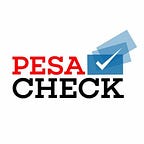FALSE: Uganda did not pay to have its flag displayed on the Burj Khalifa for Independence Day
Uganda’s Ministry of Foreign Affairs and Emaar, the company that owns the Burj have refuted the claim
A tweet claiming that the Burj Khalifa in Dubai charged Uganda AED 1 million ($272,255) for a 3 minute display on of the Ugandan national flag on the facade of the world’s tallest building is FALSE.
On October 9, Uganda’s national flag was projected on the Burj Khalifa to to celebrate the country’s 57th Independence Day.
The story was also picked up by Ekyooto.com, a Ugandan news and politics blog.
PesaCheck reached out to the Ministry of Foreign Affairs and Uganda’s Ambassador to the United Arab Emirates, Ambassador Zaake Kibedi, who confirmed that the Ugandan government did not pay to have the national flag displayed at the Burj Khalifa.
Uganda has an Embassy in Abu Dhabi in the United Arab Emirates, which is building strong networks and facilitating growth of bilateral relations between UAE and Uganda. The display of Uganda’s National Flag at the Burj Khalifa on the evening of 9/10/2019 was a friendly gesture in honour of the excellent cordial relations between both countries. This that happened at zero cost — Ambassador Kibedi.
Emaar, the real estate development company that owns the Burj Khalifa, confirmed that there was no payment made by Uganda to display the country’s flag. Responding to an enquiry by PesaCheck, the company further stated, “Usually, this is done as an honor from our end and there’s no payment involved.”
Uganda is not the first country whose flag has been displayed on the Burj Khalifa; in July and August respectively, Canada, the Philippines and Pakistan had their flags were displayed in commemoration of special national days.
PesaCheck has looked into the claim that the Burj Khalifa in Dubai charged Uganda, AED 1 million ($272,255) to have the Ugandan national flag displayed and finds it to be FALSE.
This post is part of an ongoing series of PesaCheck fact-checks examining content marked as potential misinformation on Facebook and other social media platforms.
By partnering with Facebook and similar social media platforms, third-party fact-checking organisations like PesaCheck are helping to sort fact from fiction. We do this by giving the public deeper insight and context to posts they see in their social media feeds.
Have you spotted what you think is fake news or false information on Facebook? Here’s how you can report. And, here’s more information on PesaCheck’s methodology for fact-checking questionable content.
This fact-check was written by PesaCheck Researcher Pius Enywaru was edited by PesaCheck Deputy Editor Ann Ngengere and was approved for publication by PesaCheck Managing Editor Eric Mugendi.
PesaCheck is East Africa’s first public finance fact-checking initiative. It was co-founded by Catherine Gicheru and Justin Arenstein, and is being incubated by the continent’s largest civic technology and data journalism accelerator: Code for Africa. It seeks to help the public separate fact from fiction in public pronouncements about the numbers that shape our world, with a special emphasis on pronouncements about public finances that shape government’s delivery of Sustainable Development Goals (SDG) public services, such as healthcare, rural development and access to water / sanitation. PesaCheck also tests the accuracy of media reportage. To find out more about the project, visit pesacheck.org.
PesaCheck is a joint initiative of Code for Africa, through its innovateAFRICA fund, with additional funding support from the International Budget Partnership (Kenya) and Twaweza, in partnership with a coalition of local media organisations, and the International Center for Journalists (ICFJ).
